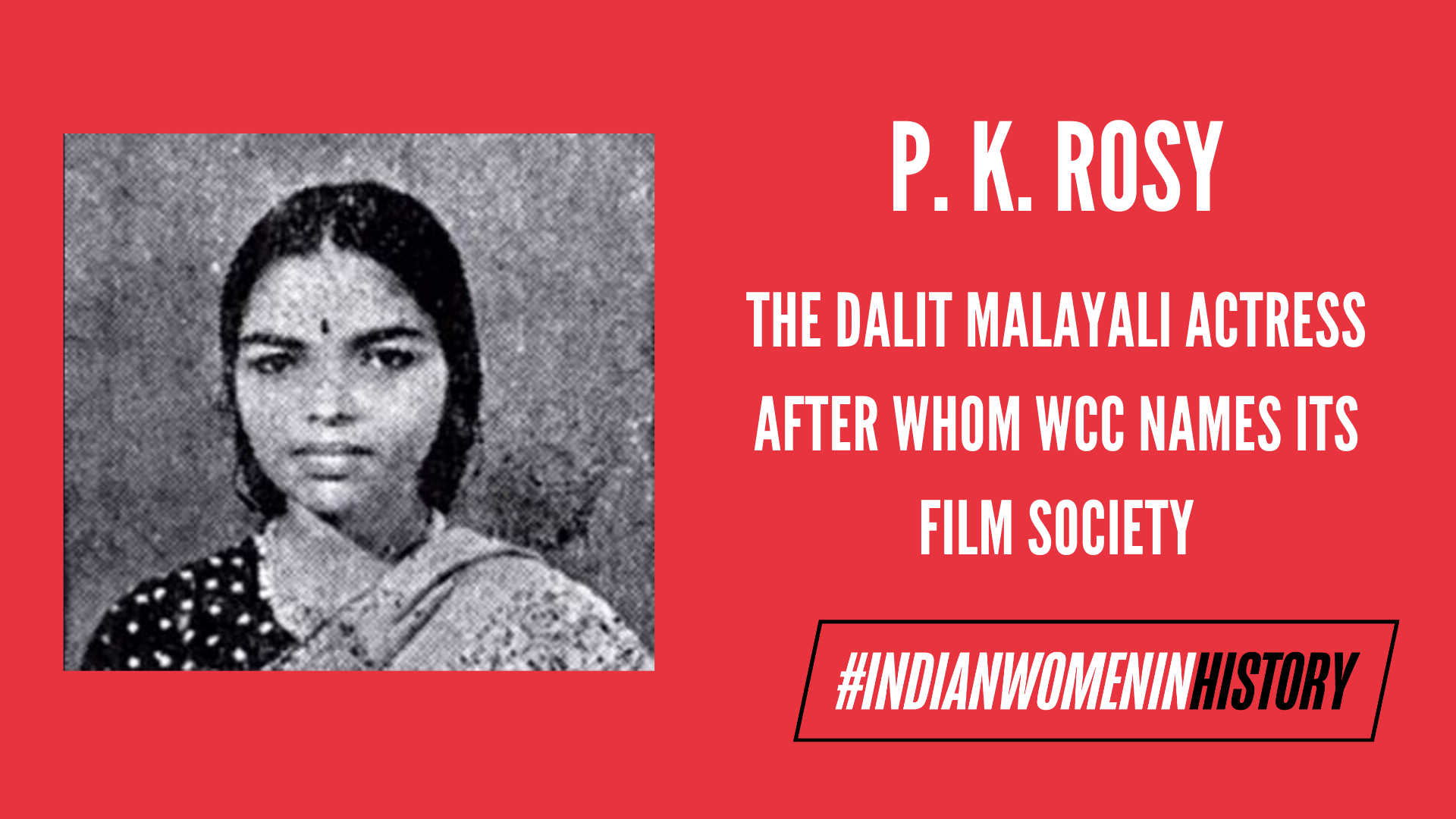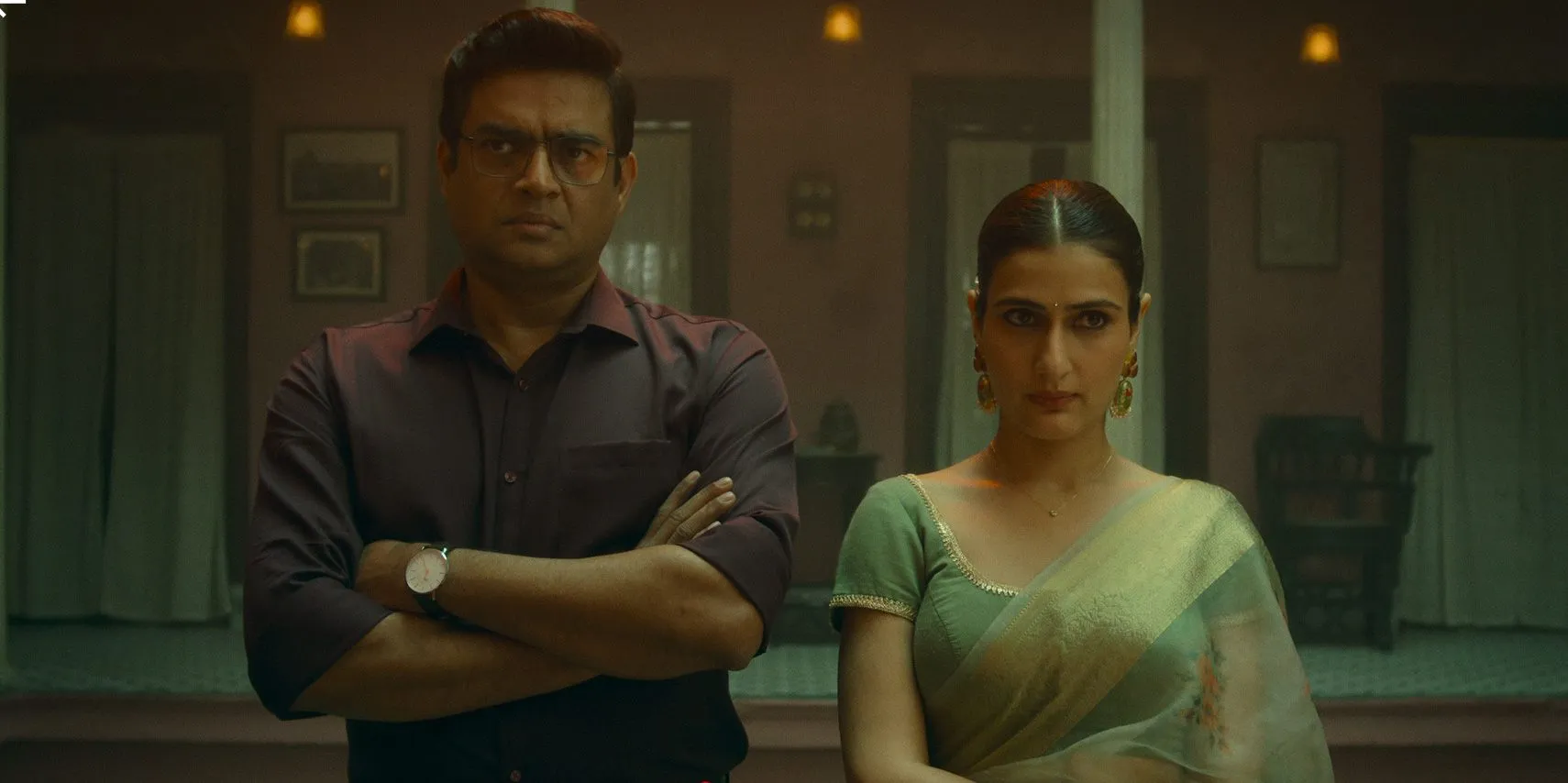The Women in Cinema Collective (WCC) was formed in the year 2017, following an incident wherein one of the leading actresses in Malayalam cinema was molested by actor Dileep and his accomplices, in a moving car near Kochi. The women of WCC recognised the need for a space where women from the industry can voice their grievances and feel safe. It was established with the objective of making the Malayalam film industry a more woman-friendly space, seeing that it is dominated by men despite a growing a number of actresses entering the field. Fueled by the outrage triggered by the assault case, their main concerns were primarily safety, exploitation of actresses, and unequal pay for actors and actresses. Now, the WCC is ready to launch its film society, named after Malayalam actress P K Rosy.
According to the WCC, “The P K Rosy Film Society is an endeavour from our side to establish a viewing space for cinema, which has often been and all-male space. Headed and run by an all ciswomen/transwomen panel, we aim at showcasing, discussing, and celebrating women filmmakers, women film professionals, and feminist cinema aesthetics.” The society aims to be an inclusive platform for those who have been otherwise excluded from mainstream cinema on account of their caste, religion, class, or gender.
But who is P K Rosy, and why is she regarded by the WCC as the ideal symbol for their pro-women film society?
The Discovery
Rosy was born in a Pulaya family by the name of Rosamma in Nandankode village, Trivandrum. Being from an economically underprivileged family, who was impoverished further when her father passed away at a young age, Rosy spent her childhood as a grass-cutter. However, she always had a passion for art, and hence learnt both acting and ‘Kakkarashi’ (a folk-dance drama) at a very young age. She was already a part of a drama company in Thiruvananthapuram when her talent was discovered by director J C Daniel during a performance.
Being from an economically underprivileged family, who was impoverished further when her father passed away at a young age, Rosy spent her childhood as a grass-cutter. However, she always had a passion for art, and hence learnt both acting and ‘Kakkarashi’ (a folk-dance drama)
Following this discovery, she became the first leading lady in Malayalam cinema through her role in the silent film, ‘Vigathakumaran’ (The Lost Child) in 1928. It was a courageous step against male, upper-caste hegemony, for a Dalit woman to be cast in a leading role (as an upper-caste Nair woman!) and be recognised as an artist. Naturally, this offended the majority of the viewers and was not met without resentment…
The Reception
The film was screened on 7 November, 1928 at Capitol Theatre. On the first day of the release itself, the film was received with outrage, especially from men belonging to the upper-caste Nair community. Already highly established members of the Malayalam film industry even refused to watch the screening as long as P K Rosy would be sitting amongst the rest of the audience. Nair men took her role as personal offence, and it hurt their caste pride to the extent that it turned the screening theatre into a site of great chaos and violence. They obstructed the proceeding of the show by tearing up the screen.
Also read: Devika Rani: The First Lady Of Indian Screen | #IndianWomenInHistory
The audience was unable to fathom not only the fact that a Dalit woman was playing the role of an upper-caste woman, but also that she was performing romantic scenes with another man. P K Rosy never escaped the constant attack thrown at her since—Large groups of Nair landlords burnt her house down and even drove her out of the village itself. The also targeted J.C. Daniel for having assigned her the acting role. He, too, had to withdraw succumb to all the protests, and led a life of poverty thereafter. Tragically, Rosy had to flee from the state of Kerala and was not able to return to participating in cinema. Sources say that the violence that she faced as a consequence of a simple acting role, “attempted not only to drive her our of Kerala and its public sphere, but also out of its own social and cinematic history itself”.
The audience was unable to fathom not only the fact that a Dalit woman was playing the role of an upper-caste woman, but also that she was performing romantic scenes with another man. P K Rosy never escaped the constant attack thrown at her since—Large groups of Nair landlords burnt her house down and even drove her out of the village itself.
Aftermath…
P K Rosy has done the unthinkable: she carved for herself a space that was strictly closed for women to penetrate into. She was from a so-called lower caste acting as an upper caste woman. Not much is known about her life after her departure from Kerala…
It is believed that she escaped to Tamil Nadu with the help of a lorry driver, who she eventually married. Ironically, her husband came from the upper-caste Nair family himself. Tragically, it appears that she was forced to keep her identity under wraps throughout her life. Some claim that she later worked in the field of agriculture as a worker in paddy fields. In this stage of her life, she adopted the name Rajamma. Later on, she went by the name Rosamma in order to be able to perform once again, as an actress, in folk theatre.
P K Rosy received considerable fame and admiration, sadly, only after her death in the year 1988. An author named Vinu Abraham wrote a novel that revolved around director J.C. Daniel and his first heroine, P K Rosy. Although it never became popular enough to enter mainstream media, a film known as “Celluloid” was later made on the basis of the novel, which allowed more people to acknowledge the struggle and contribution of P K Rosy as an icon who challenged the status-quo that had long persisted in the film industry.
The sharing of stories about P K Rosy must continue in order to earn her the recognition she always deserved but was dissuaded from earning. The first woman, and especially the first Dalit woman, to feature in Malayalam cinema is an appropriate symbol for WCC’s film society, which tries to be representative of the subaltern voices mainstream cinema finds it so convenient to vanquish.
Also read: Indrani Rahman: The Glamour Girl Of Indian Classical Dance| #IndianWomenInHistory
References
About the author(s)
Manasi is a Gender & Sexuality campaigner at Jhatkaa.org. She is the former Digital Editor at Feminism in India and a researcher in the field of women and work. She hopes to keep learning and unlearning about feminism and intersectionality, and to create meaningful impact through her work.




